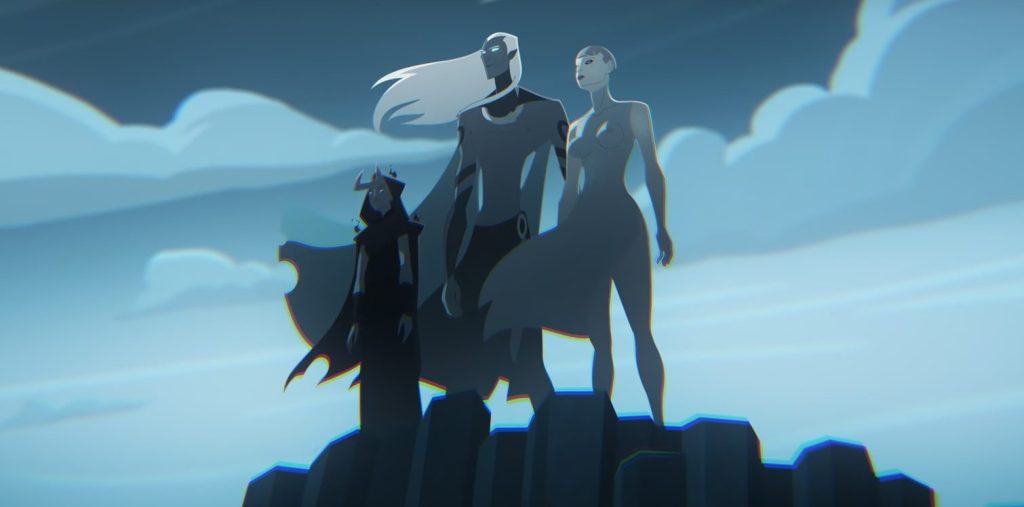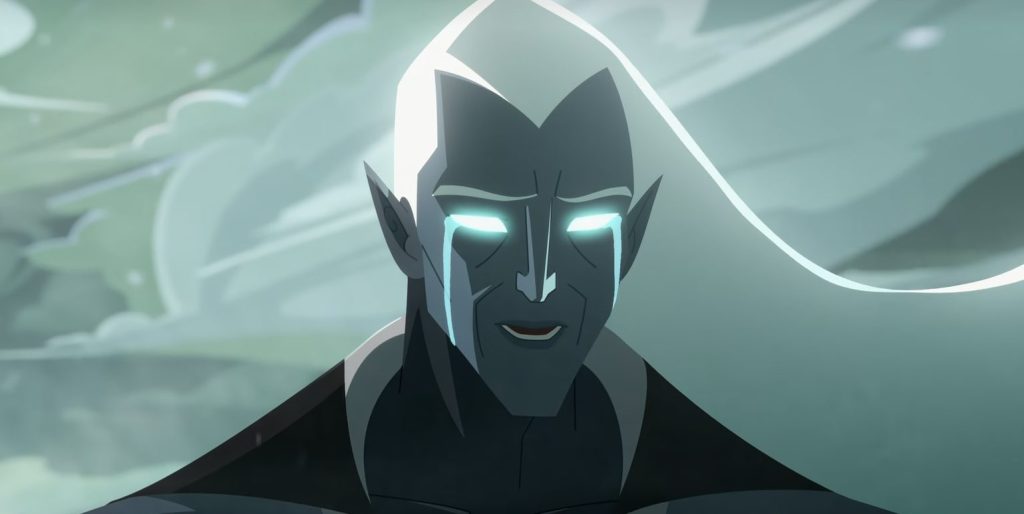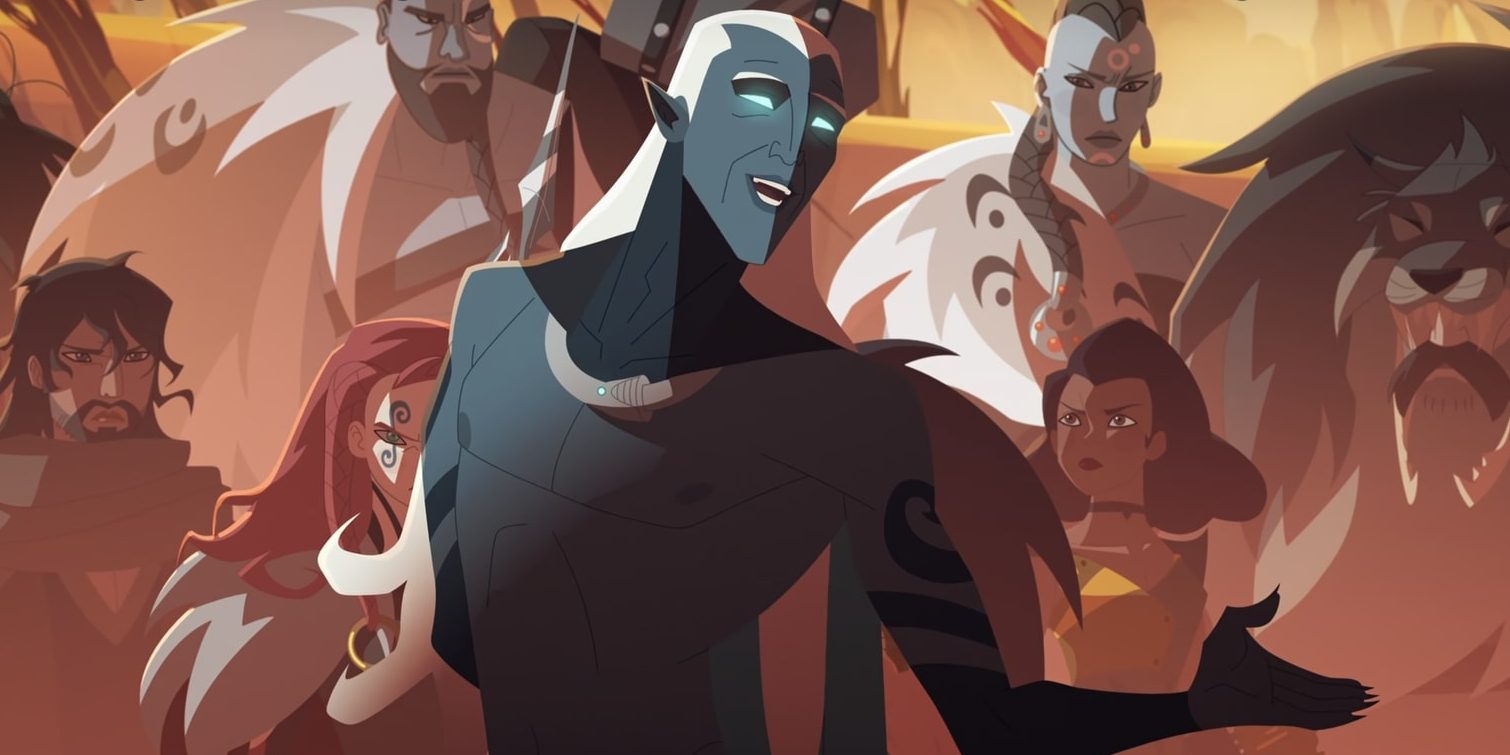The animated series ‘Twilight of the Gods’ revolves around Sigrid, a half-giant shieldmaiden whose family is butchered by Thor, the God of Thunder, on her wedding day. Subsequently, Sigrid is ensnared in a revenge quest sponsored by Loki, the God of Mischief, who himself has his sights set on Thor’s death for mysterious reasons. The trickster god plays a dual role of deception and sympathy as his tragic motivations and backstory slowly surface throughout the narrative. However, the character also has a penchant for playing people like pawns to meet his demands, making his internal objectives murky and ambiguous! SPOILERS AHEAD.
Loki Seeks to Protect His Children From Thor
Since being inducted into the halls of Asgard, Loki is viewed by his fellow Aesirs as an outsider and a treacherous entity. He is ostracized by Thor and the other significant gods, who see him as an enemy conspiring against them, mainly owing to his Frost-Giant parentage. When Loki falls in love with a Frost Giantess named Angrboda, the pair give birth to three children – Jormungandr, Fenrir, and Hel. However, the news is not treated with celebration by the Asgardians. They send Thor to take away all his children, assigning them fates worse than death. Jormungandr is thrown into the sea, Hel is discarded to the frozen realms of the dead, and Fenrir is chained for all of eternity.

Consequently, Loki grows to hate and abhor his fellow gods in Asgard. The God of Mischief concocts a plan of revenge against Thor and the other Aesir gods, wanting them gone for their abuse of power. However, a problem emerges in the shape of the Ragnarok prophecy. According to the warning, Loki’s children are fated to perish at the hands of Thor while fighting them during Ragnarok. To avoid such a cruel end to their life, Loki devises a method to kill Thor in a way that circumvents the death of his offspring. Therefore, his search for a suitable champion leads him to Sigrid. After the shieldmaiden loses her family, she too has the same burning passion against the gods as Loki. The Trickster God uses her as a tool to get rid of Thor before the God of Thunder might kill his children someday.
The Tale of the Scapegoat God
When Leif gets trapped in Hoenir’s Head during the Vanaheim arc of the story, Loki shows up to help Leif escape the mad god’s cursed lunacy. The pair partner up to climb to the top of Hoenir’s skeleton, where they believe an exit might materialize. However, during their brief stay, Leif begins seeing visions of his past cruelties, making him question his actions and his ruthlessness. The more he gets dragged into the visions, the more he loses sight of himself, causing Loki to try and bring him back through other methods. The God of Mischief convinces Leif that all his merciless decisions in the past were Loki influencing him. With the weight of his guilt now transferred to Loki’s shoulders, the King of the Volsung is exempted from his torment.

However, upon further inquiry and witnessing Loki’s visions, Leif learns that the God of Mischief is a scarred soul himself. For years, Loki has been helpless about the fate of his children, who he feels he has let down miserably. It is at this point that Leif realizes that Loki lied to him about influencing his past decisions. All his ruthless and merciless killings were no one’s responsibility but his own. Loki reveals that he allows people to believe that he is the reason for everyone’s mistakes as it helps them live their lives without guilt while he is scapegoated for their inadequacies. This tragic truth opens Leif’s eyes to the complexity of Loki’s position as one of the Aesir gods. Despite being villanized by the rest of the world, the God of Mischief is only living up to his nature and what everyone purports him to be.
Read More: Twilight of the Gods Ending, Explained: Does Sigrid Follow Thor to Valhalla?


You must be logged in to post a comment.